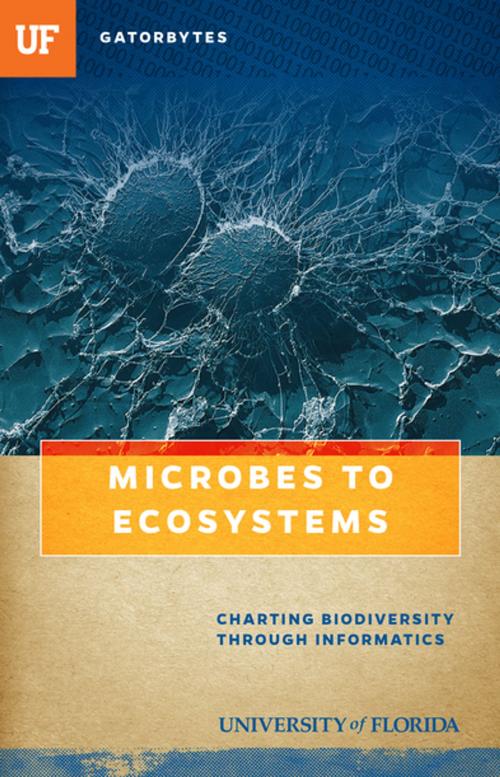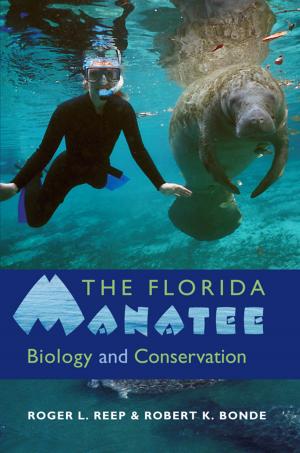Microbes to Ecosystems
Charting Biodiversity through Informatics
Nonfiction, Science & Nature, Science, Biological Sciences, Microbiology, Ecology| Author: | Blake D. Edgar, University of Florida | ISBN: | 9781942852414 |
| Publisher: | University of Florida Press | Publication: | July 26, 2017 |
| Imprint: | Gatorbytes | Language: | English |
| Author: | Blake D. Edgar, University of Florida |
| ISBN: | 9781942852414 |
| Publisher: | University of Florida Press |
| Publication: | July 26, 2017 |
| Imprint: | Gatorbytes |
| Language: | English |
The University of Florida has an ambitious goal: to harness the power of its faculty, staff, students, and alumni to solve some of society’s most pressing problems and to become a resource for the state of Florida, the nation, and the world. In Microbes to Ecosystems, follow the scientists, researchers, and staff of the University of Florida’s Biodiversity Institute as they marshal unprecedented amounts of biological data to help us conserve species, adapt to climate change, and solve pressing environmental problems. With a twenty-first-century, interdisciplinary approach, the Biodiversity Institute unites some of the most prominent researchers and state-of-the-art resources in the biological sciences, genomics, and informatics. Together they innovate new methods and technologies to accelerate discovery, communicate data and understanding, and determine potential solutions for maintaining sustainable environments. Connections are critical to both ecological and computational systems, and the institute aims to build connections that can help us more effectively study and save biological diversity, including connecting perspectives between the natural sciences and social sciences and connecting scientific research to regulatory policy. Central to the institute’s efforts is the Florida Museum of Natural History—the second largest university-based natural history museum in the country and home to more than 40 million specimens and artifacts—and iDigBio, the national center for creating a digital catalog of the earth’s flora and fauna. The stories chronicled in Gatorbytes span all colleges and units across the UF campus. They detail the far-reaching impact of UF’s research, technologies, and innovations—and the UF faculty members dedicated to them. Gatorbytes describe how UF is continuing to build on its strengths and extend the reach of its efforts so that it can help even more people in even more places.
The University of Florida has an ambitious goal: to harness the power of its faculty, staff, students, and alumni to solve some of society’s most pressing problems and to become a resource for the state of Florida, the nation, and the world. In Microbes to Ecosystems, follow the scientists, researchers, and staff of the University of Florida’s Biodiversity Institute as they marshal unprecedented amounts of biological data to help us conserve species, adapt to climate change, and solve pressing environmental problems. With a twenty-first-century, interdisciplinary approach, the Biodiversity Institute unites some of the most prominent researchers and state-of-the-art resources in the biological sciences, genomics, and informatics. Together they innovate new methods and technologies to accelerate discovery, communicate data and understanding, and determine potential solutions for maintaining sustainable environments. Connections are critical to both ecological and computational systems, and the institute aims to build connections that can help us more effectively study and save biological diversity, including connecting perspectives between the natural sciences and social sciences and connecting scientific research to regulatory policy. Central to the institute’s efforts is the Florida Museum of Natural History—the second largest university-based natural history museum in the country and home to more than 40 million specimens and artifacts—and iDigBio, the national center for creating a digital catalog of the earth’s flora and fauna. The stories chronicled in Gatorbytes span all colleges and units across the UF campus. They detail the far-reaching impact of UF’s research, technologies, and innovations—and the UF faculty members dedicated to them. Gatorbytes describe how UF is continuing to build on its strengths and extend the reach of its efforts so that it can help even more people in even more places.















